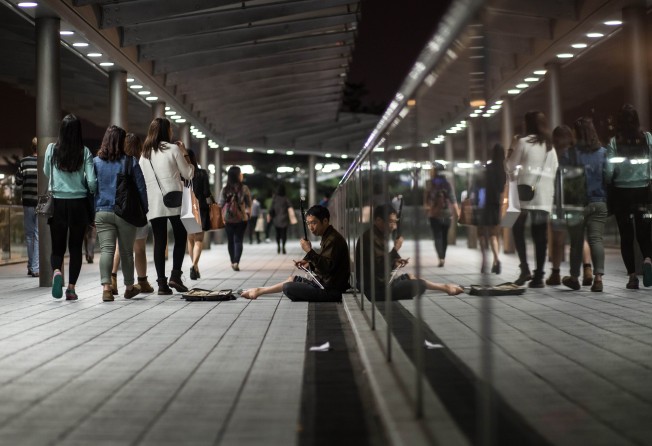Inequality must be addressed - by the community if not the government
Andrew Sheng says social policy must complement growth strategy to improve the global economy

The year end is not a bad time to reflect on where we are headed in a year of huge uncertainties. At the beginning of the year, the major headline events - Ukraine, Islamic State, the oil crash and Occupy Central - were not on most people's radars. As the year proceeded, there was a realisation that we are heading towards a period of slower growth and higher volatility, with little inflation, as commodity and oil prices fell to levels not seen since the 1990s.
The Global Citizen Foundation has just published Towards a Better Global Economy, a book detailing its research project involving top development thinkers' take on how to achieve better growth amid globalisation. This is important. Meanwhile, in his survey of "The Past, Present, and Future of Economic Growth", Princeton professor Dani Rodrik suggests that a key phase of past economic growth - when East Asia-led growth allowed the developing world to catch up with the advanced countries and brought millions out of poverty - may be ending.
Rodrik's recommendations for struggling emerging markets are to focus on "a stable macroeconomic framework, incentives for economic restructuring and diversification (both market-led and government-provided), social policies to address inequality and exclusion; continued investment in human capital and skills; and a strengthening of regulatory, legal and political institutions over time". In other words, greater complementarity between growth strategy and social policy.
Rodrik and his colleagues recognise that a world that is more diverse would be more stable and sustainable than one being made more "harmonised and coordinated" in trade and finance - the old model which drove globalisation under the Washington Consensus.
Because there is a gap between the demand for the desired amount of global public goods (such as clean air and water) and its supply, governments need to consider feedback from citizens that will inevitably push for some "deglobalisation" and diversity of views and action.
Nothing illustrates this decline in the global peace dividend more than in the economic costs of the Iraq and Afghan wars for the US. The Financial Times reported this week that the two wars combined cost US$2.7 trillion, excluding future costs in terms of military pensions, medical services and disability costs. Despite the price, US efforts have arguably not solved the civil unrest in the Middle East.
No single country can afford to maintain global peace any more. That inevitably means local conflicts and unrest will escalate. Such local wars will rewrite the artificial borders written in the colonial era, and will change the growth game.
There is no doubt that competition for resources, including human talent, will be global. The effects of globalisation mean that a few will benefit from global business. But this will also hurt the underprivileged who cannot compete on the same scale.
New wealth and income is being created in very different forms from the past. Obviously, national wealth and income originates from being at the forefront of innovation and creativity. The trouble is that not many people or companies will enjoy that wealth creation, because, as we have seen in the cases of Nokia and Kodak, wealth franchises do not last long in the face of disruptive technology.
The new knowledge-based economy means that inequality must worsen because the few with special knowledge will benefit, but the unskilled masses face huge insecurity about future jobs and income.
Occupy Central was a manifestation of the frustration of many youth at the lack of job opportunities and wealth creation. You may not agree with the way the protests were vented, but the core rationale of frustration over inequality is not wrong. If it is seen as a protest against the status quo, it is because the status quo is unsustainable.
Thomas Piketty's diagnosis about the inequality generated by capitalism, where the rate of return over capital is higher than economic growth, is not wrong. What is missing is debate on how to correct that inequality.
If governments have not historically proved adept at addressing inequality, perhaps it is time for families and communities to step up and create more opportunities for their young. This generation of wealth was created by many parents who delegated education of their young to the state and nannies. Family and community values got sidelined in the rush for free market ideology and increasing welfarism.
If the future of national growth comes from vibrant cities, then city growth must thrive on vibrant families and communities. After the protests, the process of healing and binding must inevitably require more dialogue with the young. The protests are symptoms of deeper issues that the young cannot solve because they are not in the driving seat. But they will inherit the consequences of our actions and decisions today.
Andrew Sheng writes on global issues with an Asian perspective